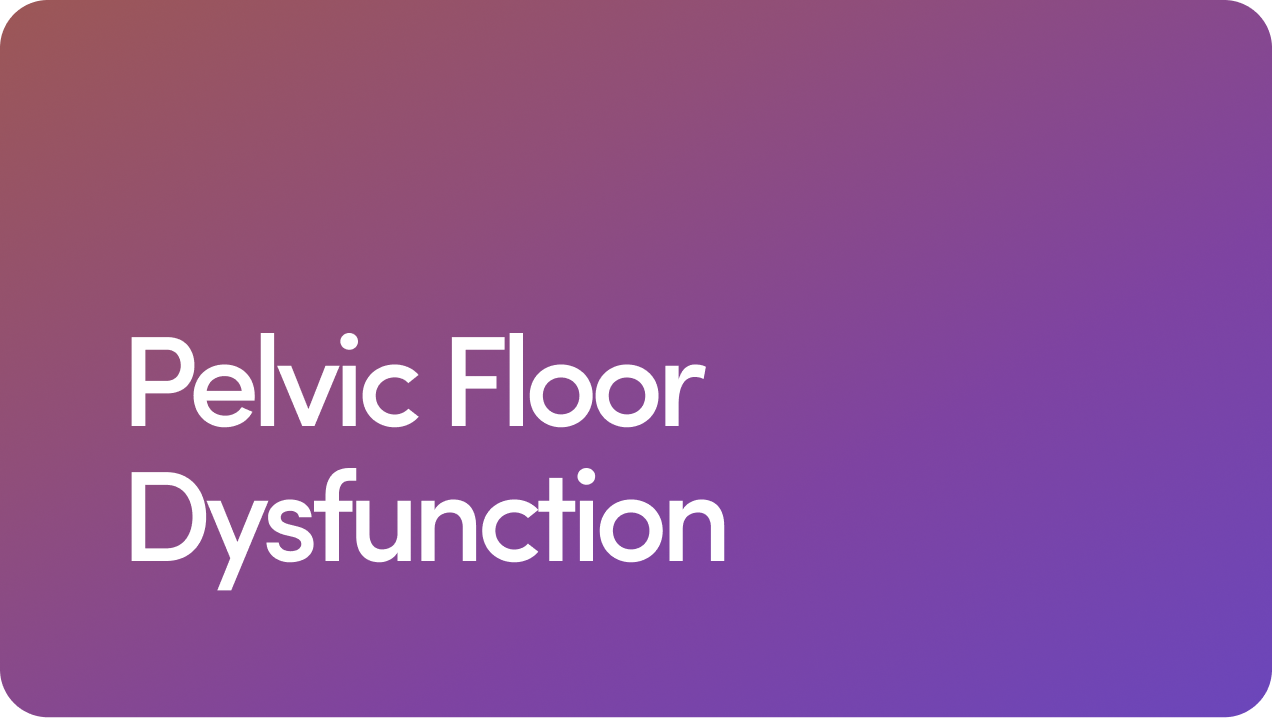Content
Your sex life, your way
Penis Health: 13 Tips for Keeping Your Penis Healthy

Men’s health is a phrase we use to talk about everything from the hair on your head to the aches in your feet and everything in-between, but there’s one segment of overall health that guys care most about — having a healthy penis.
Of course, if you take good care of your penis, you stand a pretty good chance of avoiding most of the health scares that might occur throughout your life.
With that in mind, we’ve collected a list of tips for penile health, along with some facts about why the health of your penis is more important than you might think. For starters: it could be a canary in the coal mine for your entire body.
Content
Penis health is just a way at looking at the function, shape and general survival of your penis. And in the same way that diet, exercise and other elements of your habits, lifestyle and genetics can affect heart health, they can frankly affect your penis health too.
Luckily, taking care of your penis is relatively simple. In fact, most things that are good for your general health — such as exercising often, eating well and maintaining a healthy weight — are also good for your penis.
However, there are also a few penis-specific things that you should probably be aware of, so it can be in tip-top shape when you bring someone home from a successful date.
What Affects Penis Health?
Your penis and its functionality are vulnerable to a number of health risks, including:
Sexually transmitted infections (STIs) and diseases (STDs) like syphilis and genital warts
High blood pressure
Obesity
Low testosterone levels
Side effects of medications
Poor hygiene
Sexual injuries
Foreskin problems like phimosis and circumcision complications
Penile cancer
Conditions like Peyronie’s disease or penile fractures, which can crop up anytime there’s trauma to your penis
In other words, there are a lot of things to look out for if you want a reliable, healthy, erect penis.
Now let’s talk about how to prevent them.
It doesn’t take a urology expert to tell you that your penis’ health matters. From the head of the penis down to the base of the scrotum, there’s a lot to take care of (regardless of penis size) and if you care about how your penis looks, feels and performs, you’ve got to put the work in. Luckily, many of the tips we’ve assembled are good for the rest of your body too.
Here’s what to do.
1. Eat a Balanced & Healthy Diet
Your diet plays an essential role in the wellbeing and function of your penis. While there’s no “perfect” penis diet, eating a balanced diet rich in vitamins, minerals and other nutrients is generally a smart idea to keep all your organs healthy. It’s especially good for your cardiovascular health, which means it’s good for your sexual health.
A review in the Journal of Sexual Medicine concluded that men who are not affected by erectile dysfunction (ED) are more likely to have a diet rich in fruits, vegetables, whole grains and fish, but low in refined grains and processed meats. The authors also noted that the heart-friendly Mediterranean diet may help to reduce the risk of ED in men with diabetes.
2. Exercise Regularly
Healthy erections are all about blood flow, and exercise gets your cardiovascular system flowing properly.
Exercise has been shown to reduce your risk of heart disease, improve your mental health and even prevent depression, which can all affect your sexual performance.
Try to exercise often — as little as 30 minutes per day is enough to produce an improvement in your cardiovascular health.
3. Maintain a Healthy Body Weight
The heavier you are, the more likely you are to develop ED, so staying at an optimal weight is crucial for penis health.
Overweight and obese men (those with a high BMI) are more likely to experience sexual dysfunction, and while it may not be the weight itself, the associated health risks of obesity can weigh heavily on erectile health. Luckily, a study published in 2005 found that 31 percent of men with ED restored their function after losing weight.
So do the work — you’ll see the results.
4. Make Sure to Hydrate
Dehydration is a pretty obvious no-no for your health. Obviously dying of dehydration will pretty much end your erectile adventures for good, but chronic — or even mild — dehydration can cause problems with your erectile health, so make sure you refill that water glass.
5. Try Pelvic Floor Exercises
Pelvic floor exercises can help with a number of penile problems, from urology issues with incontinence to stamina.
Kegels strengthen the muscles between your pubic bone and tailbone, which play a role in your sexual function. These exercises can also increase your level of control over your bladder and prevent issues like leakage and dripping after you pee.
Our guide to erectile dysfunction exercises is a great place to learn how to practice these at home.
6. Maintain a Healthy Sleep Schedule
The quality and quantity of your sleep is about more than how alert and focused you are during the day — it can also interfere with your erection quality.
According to the CDC, adults who sleep for less than seven hours a night are more likely to say they have health problems, including heart attacks, depression and asthma — all of which can have trickle-down effects on your penis.
Try to get at least seven hours of sleep per night. You can check out some science-based sleep tips if you need help snatching those Zzzs.
7. Stay on Top of Your Mental Health
Your mental health can affect your sexual health even when the rest of your body seems to be functioning normally. We’re not just talking about ED that’s caused by psychological factors — everything from stress to sleep issues to low self-esteem can prevent erections.
Feelings of guilt about sex or certain sexual activities or fear of sexual failure can also affect your sexual health, as can conditions like depression and anxiety.
There are many ways to improve your mental health, but when you want to deal with thought patterns and behaviors affecting your sexual performance, forms of therapy like cognitive behavioral therapy (CBT) and sex therapy may be the way to go.
You can learn more about this type of treatment in our detailed guide to sex therapy for erectile dysfunction.
Oh, and taking care of your mental health as it relates to sex may mean cutting back on porn. While the link between porn and sexual performance issues isn’t crystal clear, a thorough review in the journal Behavioral Sciences noted online porn may be linked to rising sexual dysfunction in young men.
We’ve talked about this topic, as well as the ongoing research into the effects of porn on your penis health and erectile function, in our guide to porn-induced ED.
8. Minimize Stress
Whether it develops at work or at home, stress can become a cause of psychological erectile dysfunction.
If you’re feeling stressed, try to make changes to your habits and lifestyle to limit your exposure to things that cause you to feel stressed, worried and anxious.
9. Try to Quit Smoking
Smoking is bad for your health — and, possibly, your penis. Numerous studies have established links between cigarette smoking and sexual performance issues.
If you smoke, make an effort to quit — the benefits of quitting extend far beyond your penis health and sexual performance.
10. Only Drink Alcohol in Moderation
While it’s okay to drink in moderation, research shows that men who are dependent on alcohol usually have high levels of sexual dysfunction, low sexual desire, erectile dysfunction and premature ejaculation.
Even if you’re in good health, drinking can cause temporary sexual issues you and the boys might have referred to as “whiskey dick.”
Try to limit your consumption to a safe, healthy level — a maximum of two alcoholic drinks per day according to the CDC.
11. Maintain Proper Penis Hygiene
While we’re covering obvious things, you should remember to keep your penis clean.
Proper hygiene helps prevent the build-up of smegma, a substance that’s made up of oil, dead skin cells and moisture which, as you can imagine, can increase your risk of infection.
Wash your penis at least one time every day using warm water — and be sure to be thorough.
12. Take Steps to Avoid Sexually Transmitted Infections (STIs)
There are dozens of sexually transmitted infections, or STIs (sometimes called sexually transmitted diseases, or STDs), many of which can spread to your body through direct contact with others.
While some STIs are primarily an annoyance, others can have serious consequences for your health and wellbeing — all STIs are worth getting diagnosed and treated for.
Common STIs include:
Gonorrhea
Chlamydia
Genital herpes
Human papillomavirus (HPV)
You can lower your risk by taking the following precautions:
Wear a condom, which will significantly reduce your risk of infection for all STDs.
Get tested regularly to learn about any existing infections, some of which may not have symptoms. The CDC website provides more information about how STD testing works, as well as a testing site finder tool that you can use to find testing locations near you.
Get vaccinated against conditions like HPV that can cause STIs.
13. Support Your Sexual Health
ED and PE are serious conditions to deal with, and while pretending they don’t exist may help you avoid awkward conversations with a healthcare provider, it’s probably causing serious problems in your relationships.
Here’s how to treat both:
Erectile dysfunction (ED) medications include Viagra® (sildenafil), Cialis® (tadalafil), Levitra® (vardenafil) and Stendra® (avanafil). We offer several ED medications online, following a consultation with a healthcare provider who will determine if a prescription is appropriate.
Premature ejaculation (PE) medications are really medications for other conditions that are used off-label. Antidepressants such as sertraline (the active ingredient in Zoloft®), Lexapro® (escitalopram), Prozac® (fluoxetine) and Paxil® (paroxetine) can be employed. Talk to a healthcare professional about your options, which may also include topical treatments like our Clockstopper benzocaine wipes or Delay Spray.
Keeping Your Penis Healthy
A number of health conditions can affect the function of your penis, your testicles, the blood vessels that give you erections and the brain that lets you get turned on.
Luckily, regular checkups, good hygiene and some smart lifestyle changes can largely prevent health issues related to your member.
Want to keep your penis in tip-top shape? Here’s what to remember:
Penis health is about both the performance of your penis, like your ability to get and maintain an erection during sex, and basic hygiene, which lowers your risk of STIs and other infections.
For the most part, anything that improves your cardiovascular health or hygiene will also have a positive effect on your penis and sexual performance. The most effective way to keep your penis healthy and functioning properly is to keep your body in good shape through regular exercise, a balanced diet and other healthy habits.
On the other hand, habits like smoking or drinking alcohol excessively may prevent your penis from functioning correctly.
It’s also important to maintain your mental health, which has a significant impact on your sexual desire, function and performance.
Science-based treatments, such as ED meds, can improve your sexual function and may play a role in maintaining the health of your penis.
If you have a penis-related health issue, you can talk to a licensed healthcare provider online about next steps.
Penis care doesn’t have to be a constant concern or a source of anxiety. Take steps to prevent problems today — your sex life will thank you tomorrow.
14 Sources
- Centers for Disease Control and Prevention. (2023, July 7). CDC - STD Diseases & Related Conditions. Centers for Disease Control and Prevention. https://www.cdc.gov/std/general/default.htm.
- Centers for Disease Control and Prevention. (2022a, April 19). Facts about moderate drinking. Centers for Disease Control and Prevention. https://www.cdc.gov/alcohol/fact-sheets/moderate-drinking.htm.
- Kovac, J. R., Labbate, C., Ramasamy, R., Tang, D., & Lipshultz, L. I. (2015). Effects of cigarette smoking on erectile dysfunction. Andrologia, 47(10), 1087–1092. https://www.ncbi.nlm.nih.gov/pmc/articles/PMC4485976/.
- Arackal, B. S., & Benegal, V. (2007). Prevalence of sexual dysfunction in male subjects with alcohol dependence. Indian journal of psychiatry, 49(2), 109–112. https://www.ncbi.nlm.nih.gov/pmc/articles/PMC2917074/.
- Betjes, E. (2014, February 10). How should an uncircumcised man wash his penis?. ISSM. https://www.issm.info/sexual-health-qa/how-should-an-uncircumcised-man-wash-his-penis/.
- Park, B. Y., Wilson, G., Berger, J., Christman, M., Reina, B., Bishop, F., Klam, W. P., & Doan, A. P. (2016). Is Internet Pornography Causing Sexual Dysfunctions? A Review with Clinical Reports. Behavioral sciences (Basel, Switzerland), 6(3), 17. https://www.ncbi.nlm.nih.gov/pmc/articles/PMC5039517/.
- Centers for Disease Control and Prevention. (2022, September 14). How much sleep do I need?. Centers for Disease Control and Prevention. https://www.cdc.gov/sleep/about_sleep/how_much_sleep.html.
- Evans M. F. (2005). Lose weight to lose erectile dysfunction. Canadian family physician Medecin de famille canadien, 51(1), 47–49. https://www.ncbi.nlm.nih.gov/pmc/articles/PMC1479584/.
- Cohen, D., Gonzalez, J., & Goldstein, I. (2016). The Role of Pelvic Floor Muscles in Male Sexual Dysfunction and Pelvic Pain. Sexual Medicine Reviews, 4(1), 53-62. https://www.sciencedirect.com/science/article/abs/pii/S2050052115000025.
- Pelvic floor muscles. Pelvic Floor Muscles: Symptoms, Diagnosis & Treatment - Urology Care Foundation. (n.d.). https://www.urologyhealth.org/urology-a-z/p/pelvic-floor-muscles.
- Centers for Disease Control and Prevention. (2021, January 4). How does sleep affect your heart health?. Centers for Disease Control and Prevention. https://www.cdc.gov/bloodpressure/sleep.htm.
- Skrypnik, D., Bogdański, P., & Musialik, K. (2014). Otyłość--istotny czynnik ryzyka zaburzeń potencji u mezczyzn [Obesity--significant risk factor for erectile dysfunction in men]. Polski merkuriusz lekarski : organ Polskiego Towarzystwa Lekarskiego, 36(212), 137–141. https://pubmed.ncbi.nlm.nih.gov/24720114/.
- U.S. Department of Health and Human Services. (n.d.). Exercise and fitness. National Heart Lung and Blood Institute. https://www.nhlbi.nih.gov/health/educational/lose_wt/phy_act.htm.
- Esposito, K., Giugliano, F., Maiorino, M. I., & Giugliano, D. (2010). Dietary factors, Mediterranean diet and erectile dysfunction. The journal of sexual medicine, 7(7), 2338–2345. https://pubmed.ncbi.nlm.nih.gov/20487239/.
Editorial Standards
Hims & Hers has strict sourcing guidelines to ensure our content is accurate and current. We rely on peer-reviewed studies, academic research institutions, and medical associations. We strive to use primary sources and refrain from using tertiary references. See a mistake? Let us know at [email protected]!
This article is for informational purposes only and does not constitute medical advice. The information contained herein is not a substitute for and should never be relied upon for professional medical advice. Always talk to your doctor about the risks and benefits of any treatment. Learn more about our editorial standards here.

Kelly Brown, MD
Dr. Kelly Brown is a board certified Urologist and fellowship trained in Andrology. She is an accomplished men’s health expert with a robust background in healthcare innovation, clinical medicine, and academic research. Dr. Brown was previously Medical Director of a male fertility startup where she lead strategy and design of their digital health platform, an innovative education and telehealth model for delivering expert male fertility care.
She completed her undergraduate studies at University of North Carolina at Chapel Hill (go Heels!) with a Bachelor of Science in Radiologic Science and a Minor in Chemistry. She took a position at University of California Los Angeles as a radiologic technologist in the department of Interventional Cardiology, further solidifying her passion for medicine. She also pursued the unique opportunity to lead departmental design and operational development at the Ronald Reagan UCLA Medical Center, sparking her passion for the business of healthcare.
Dr. Brown then went on to obtain her doctorate in medicine from the prestigious Northwestern University - Feinberg School of Medicine and Masters in Business Administration from Northwestern University - Kellogg School of Management, with a concentration in Healthcare Management. During her surgical residency in Urology at University of California San Francisco, she utilized her research year to focus on innovations in telemedicine and then served as chief resident with significant contributions to clinical quality improvement. Dr. Brown then completed her Andrology Fellowship at Medical College of Wisconsin, furthering her expertise in male fertility, microsurgery, and sexual function.
Her dedication to caring for patients with compassion, understanding, as well as a unique ability to make guys instantly comfortable discussing anything from sex to sperm makes her a renowned clinician. In addition, her passion for innovation in healthcare combined with her business acumen makes her a formidable leader in the field of men’s health.
Dr. Brown is an avid adventurer; summiting Mount Kilimanjaro in Tanzania (twice!) and hiking the incredible Torres del Paine Trek in Patagonia, Chile. She deeply appreciates new challenges and diverse cultures on her travels. She lives in Denver with her husband, two children, and beloved Bernese Mountain Dog. You can find Dr. Brown on LinkedIn for more information.
Education & Training
Andrology Fellowship, Medical College of Wisconsin
Urology Residency, University of California San Francisco
M.D. Northwestern University Feinberg School of MedicineB.S. in Radiologic Science, Chemistry Minor, University of North Carolina at Chapel Hill
Research
Published as Kelly Walker
Cowan, B, Walker, K., Rodgers, K., Agyemang, J. (2023). Hormonal Management Improves Semen Analysis Parameters in Men with Abnormal Concentration, Motility, and/or Morphology. Fertility and Sterility, Volume 118, Issue 5, e4. https://www.sciencedirect.com/journal/fertility-and-sterility/vol/120/issue/1/suppl/S
Walker, K., Gogoj, A., Honig, S., Sandlow, J. (2021). What’s New in Male Contraception? AUA Update Series, Volume 40. https://auau.auanet.org/content/update-series-2021-lesson-27-what%E2%80%99s-new-male-contraception
Walker, K., Shindel, A. (2019). AUA Erectile Dysfunction Guideline. AUA Update Series, Volume 38. https://auau.auanet.org/content/course-307
Walker, K., Ramstein, J., & Smith, J. (2019). Regret Regarding Fertility Preservation Decisions Among Male Cancer Patients. The Journal of Urology, 201(Supplement 4), e680-e681. https://www.auajournals.org/doi/10.1097/01.JU.0000556300.18991.8e
Walker, K., & Smith, J. (2019). Feasibility Study of Video Telehealth Clinic Visits in Urology. The Journal of Urology, 201(Supplement 4), e545-e545. https://www.auajournals.org/doi/10.1097/01.JU.0000556071.60611.37
Related Articles
Related Conditions
 Erectile Dysfunction
Erectile Dysfunction
 Premature Ejaculation
Premature Ejaculation
 Low Testosterone
Low Testosterone
 Retrograde Ejaculation
Retrograde Ejaculation
 Pelvic Floor Dysfunction
Pelvic Floor Dysfunction
 Anorgasmia
Anorgasmia